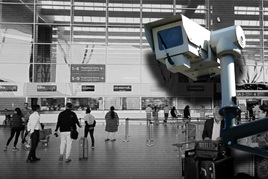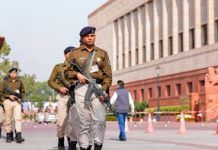The city of Bengaluru, a haven for techies, is about to embark on a video surveillance experiment that plans to introduce facial recognition technology even as activists and privacy experts warn that it could set a dangerous precedent and pave the way for profiling of citizens by the police. RTI responses from the city police led to the discovery that the surveillance system will be linked to a ‘blacklist library’, which aims to match faces from CCTV feeds with images from a police database.
RTI responses received by the Internet Freedom Foundation (IFF) found that the system aims to match faces and generate alerts when a ‘blacklisted’ person is detected on the footage of surveillance cameras. “The Facial Recognition System (FRS) should be able to match faces with images from its database/previous feeds, and track the past movements of these individuals.
The system should generate alerts when a ‘blacklisted person’ is detected on the footage, or when someone is detected in an area where they are not permitted,” reads the RTI response from the Bengaluru police. IFF is a New Delhi based digital rights organisation that seeks to ensure Indian citizens can use the internet with the liberties guaranteed by the Constitution.
The system will have the ability to capture facial images from live CCTV footage, search for matches based on facial features, and match facial images with pre-recorded video feeds obtained from CCTVs deployed in certain “critical” identified locations in the city and from video feeds obtained from private or other public organisations — which activists point out sounds very much like profiling neighbourhoods and people based on caste and class.
Though the ‘blacklist library’ is yet to be defined by the police, officials revealed that there are records of criminals maintained in each police station. “These records show those convicted in crimes and have a history of assaults or causing bodily harm. We maintain individual profiles of people in their local police stations and could share this information with the command centre,” a senior police official involved in the project said.
Police officials confirmed that the revamp of the surveillance system, under the Union government’s Safe City project, will see new cameras set up in more than 1000 locations and a command centre set up to monitor video surveillance feeds. A tender called by the Bengaluru Police last year to install CCTV cameras in the city was bagged by Honeywell Automation India Ltd – a subsidiary of the US-headquartered multinational corporation Honeywell International Inc.








